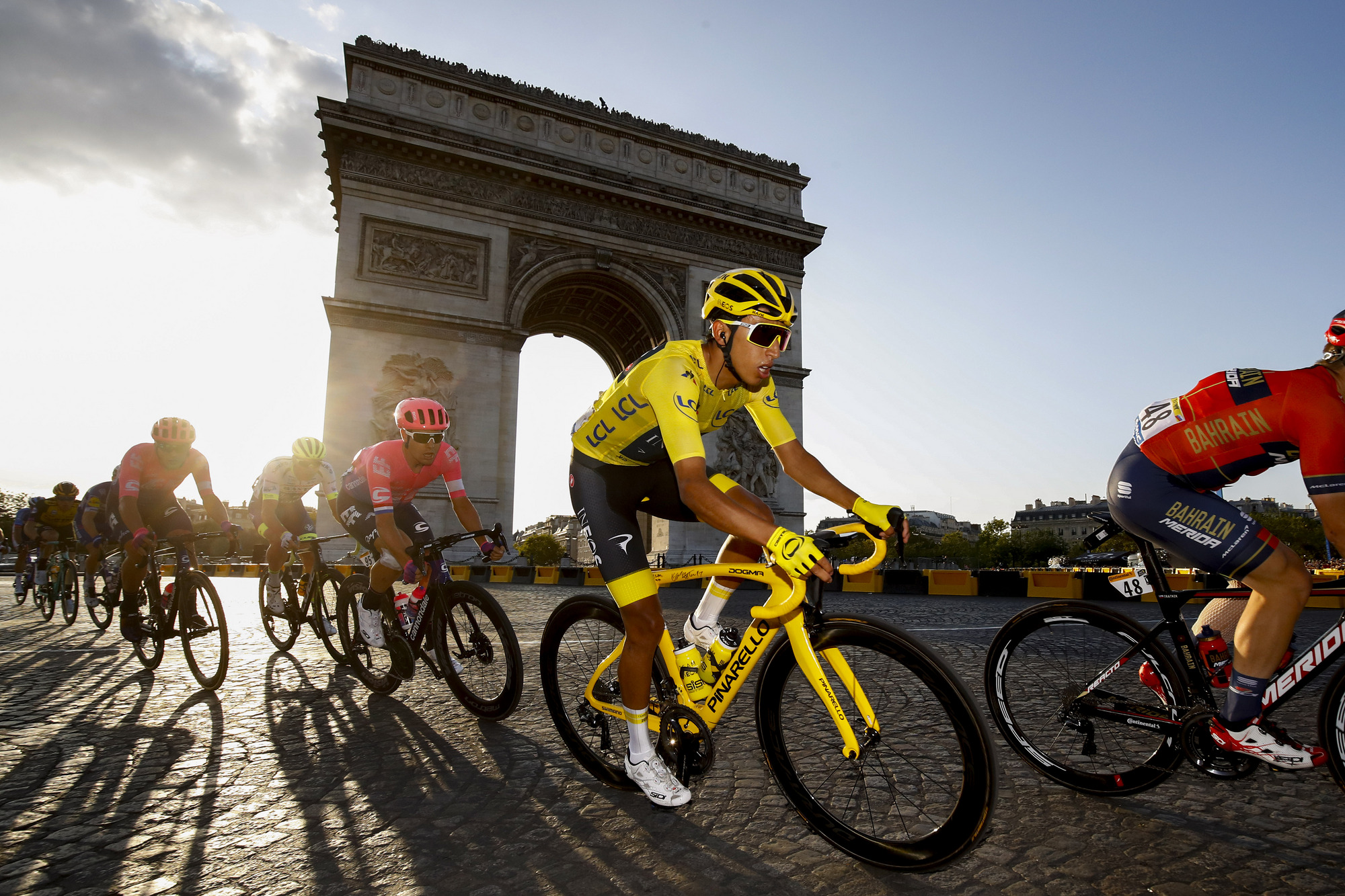Coronavirus: Cookson suggests 2020 Grand Tours be reduced to two weeks
'This way all the planned major events can take place, even if they have to be shortened due to the unique circumstances'

Former UCI President Brian Cookson has suggested reducing the Tour de France, Giro d'Italia and Vuelta a España to two weeks to help create a new post-coronavirus race calendar that will allow all the major races to take place in the second half of the season.
Over 100 races have so far been postponed, with others cancelled. The Giro d'Italia will not be held in May and all the men's and women's Spring Classics scheduled for April are now trying to understand when they will be held. The race calendars have become a giant puzzle, for the UCI, race organisers, riders and teams, with the postponed races trying to fit in with the already packed calendar in the second half of the year.
Riders and teams will also need time to train for any return to racing, with some worried about a two-speed peloton due to riders not being allowed outdoors in Italy, Spain and France while riders in Belgium, the USA and the Netherlands can still train outdoors.
The Giro d'Italia, Tour de France and Vuelta a España traditionally last 21 days, with the pre-race build-up and logistics extending the length of a Grand Tour campaign to four weeks. The Giro d'Italia was scheduled for May 9-31, the Tour de France for June 27-July 19 and the Vuelta a España for August 14-September 6.
The ongoing coronavirus pandemic is hitting countries at different times, with varying predictions as to when strict lockdown and limitations on movement and sporting events will end in each country. Giro d'Italia organiser RCS Sport are considering an early June date, with the corsa rosa seen as a way of showing the world that Italy is recovering from the terrible impact of the coronavirus.
ASO have said little about the Tour de France going ahead as planned, but the French government is keen to defend the symbolic value of the race, even if it means limiting crowds and the size of the Tour caravan. The Vuelta a Espana is hoping to go ahead as planned but could see other major races and perhaps even the Giro d'Italia held at the same time.
The risk of races overshadowing each other is one of the reasons behind Cookson's suggestion to reduce all three Grand Tours to two weeks.
Get The Leadout Newsletter
The latest race content, interviews, features, reviews and expert buying guides, direct to your inbox!
"I'll be very, very, surprised if the Tour de France happens on the planned dates given the situation in France at the moment, which seems to be getting worse, not better. But if things do improve sufficiently then here are my suggestions," Cookson told Cyclingnews in a written message from his home in northern England.
"With the Olympics now postponed to 2021, that gives more space in the calendar for a shortened Tour de France to take place, later in July or early August. A two-week Tour would then leave room for a delayed two-week Giro d'Italia in early September before the World Championships and a similar two-week Vuelta a España in October.
"The postponed Spring Classics and smaller stage races such as the Tour of Britain, Tour de Pologne and other national tours could perhaps take place at the same time as the Grand Tours to keep as many teams and their riders racing. The postponed Monuments (Milan-San Remo, the Tour of Flanders, Paris-Roubaix, Liege-Bastogne-Liege, plus Il Lombardia could slot into intermediate weekends."
"This way all the planned major events can take place, even if they have to be shortened due to the unique circumstances.
"Of course, many of the same issues apply to the women's road calendar, although though it is perhaps simpler to arrange, and to the other disciplines in our sport."
RCS Sport was quick to hit back at a suggestion by current UCI President David Lappartient to reduce the length of the Giro d'Italia, with the UCI forced to clarify that no decision has been made regarding the reallocation of dates and the format of the events concerned. A key conference call of the sport's stakeholders is expected to be held on April 1.
A reduction in the length of Grand Tours could mean a significant loss in television right, start and finish town fees and sponsorship.
"Maybe some of the event organisers won't like the idea of reducing their length, but I'd ask them to take the long view, to consider the teams and, perhaps most importantly, think of the fans who want to see the races, even if they are a little different from normal years," Cookson said.
"All this obviously depends on a major improvement in the global health situation, particularly in France, Italy, Spain and the rest of Europe. Which sadly there is no sign of just yet. If things don't improve, the whole season could well be lost, which could be disastrous for the economy and sustainability of the sport.
"Of course, the health of the world's population is of course the most important thing, but cycling is important for those of us who care about the sport we love and the people who make it happen. But if we can start to recover something, anything, in 2020, then maybe two-week Grand Tours could be part of the answer."

Stephen is one of the most experienced member of the Cyclingnews team, having reported on professional cycling since 1994. He has been Head of News at Cyclingnews since 2022, before which he held the position of European editor since 2012 and previously worked for Reuters, Shift Active Media, and CyclingWeekly, among other publications.